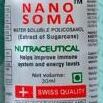Vitamin D Receptors: The Hidden Regulators of Immune Function
Vitamin D has long been recognized for its pivotal role in bone health, but emerging research has unveiled its significant influence on the immune system. At the heart of this process are Vitamin D receptors (VDRs), which serve as the key mediators of the hormone’s effects within the body. These receptors are not only fundamental to calcium and phosphorus metabolism but are also critical regulators of immune function, impacting both innate and adaptive immune responses.
Understanding Vitamin D and Its Receptors
Vitamin D is a fat-soluble vitamin that can be synthesized in the skin through exposure to sunlight and acquired from certain foods and supplements. Once in the body, vitamin D undergoes a two-step conversion process—first to calcidiol (25-hydroxyvitamin D) in the liver, and subsequently to calcitriol (1,25-dihydroxyvitamin D), the biologically active form of the vitamin, in the kidneys.
Vitamin D exerts its effects primarily through its receptors, located in various cells throughout the body, including immune cells such as monocytes, macrophages, and dendritic cells. VDR is a transcription factor that, upon binding to calcitriol, enters the nucleus of the cell and regulates gene expression, influencing numerous biological processes, including the immune response.
The Role of VDRs in Immune Regulation
1. Modulating Innate Immunity
Innate immunity serves as the first line of defense against pathogens. VDRs play a crucial role in enhancing innate immune responses by promoting the differentiation and functioning of immune cells. For instance, vitamin D influences the activation and production of antimicrobial peptides, such as cathelicidin and defensins, which target and eliminate pathogens.
Moreover, VDRs have been shown to instruct monocytes and macrophages to produce cytokines, which are signaling molecules that help orchestrate the immune response. This modulation ensures an efficient and appropriate response to infections, potentially reducing the risk of chronic inflammation and autoimmunity.
2. Influencing Adaptive Immunity
Adaptive immunity involves a more specific response to pathogens, primarily mediated by T cells and B cells. VDRs on these cells guide the differentiation and proliferation of T helper cells, which play a pivotal role in protecting against infections and promoting antibody responses.
Research indicates that sufficient levels of vitamin D can skew T cell differentiation towards a regulatory phenotype while inhibiting the formation of pro-inflammatory T cells, such as Th17 cells. This balance is crucial for maintaining immune homeostasis and preventing autoimmune diseases. Furthermore, VDRs influence B cell activation and can enhance antibody production, vital for long-term immunity.
Implications for Health
The connection between VDRs and immune function has substantial implications for various health conditions. Vitamin D deficiency has been associated with an array of diseases, from increased susceptibility to infections, such as respiratory tract infections, to autoimmune disorders like multiple sclerosis and rheumatoid arthritis. Adequate vitamin D levels may bolster immune protection and reduce the incidence and severity of these conditions.
Additionally, during the COVID-19 pandemic, studies emerged exploring the relationship between vitamin D status and susceptibility to severe disease. While the findings are still evolving, the potential role of vitamin D and VDRs in modulating immune responses highlights a compelling area for future research.
Conclusion
Vitamin D receptors represent a crucial link between vitamin D availability and immune function. These hidden regulators influence both innate and adaptive immune responses, helping to maintain homeostasis and protect against a range of diseases. As we continue to uncover the multifaceted roles of vitamin D in health, ensuring adequate levels of this vital nutrient may be essential not just for bone health, but for comprehensive immune competence as well.
For individuals seeking to optimize their vitamin D status, light exposure, dietary sources such as fatty fish and fortified foods, and appropriate supplementation should be considered, particularly for those at risk of deficiency. With ongoing research, the therapeutic potential of targeting VDRs in immune modulation may pave the way for novel interventions in disease prevention and treatment.
